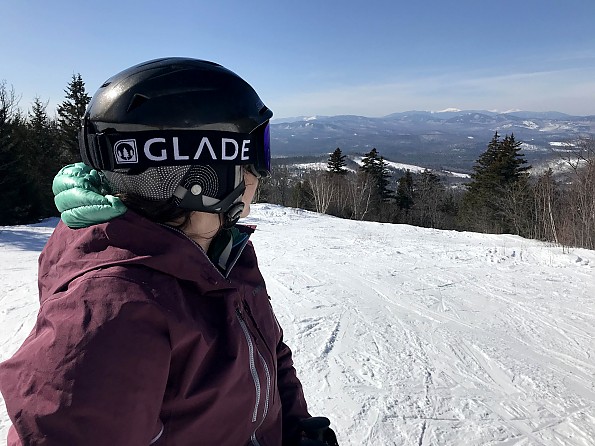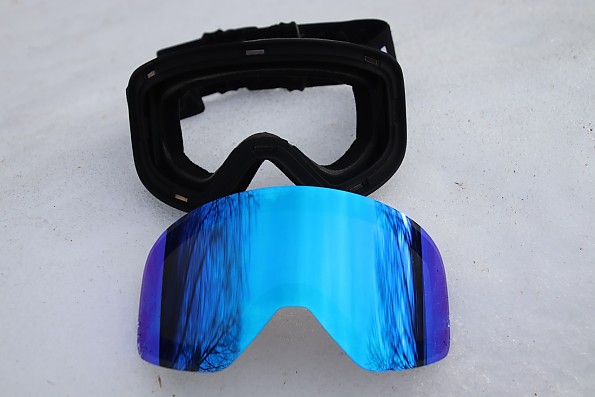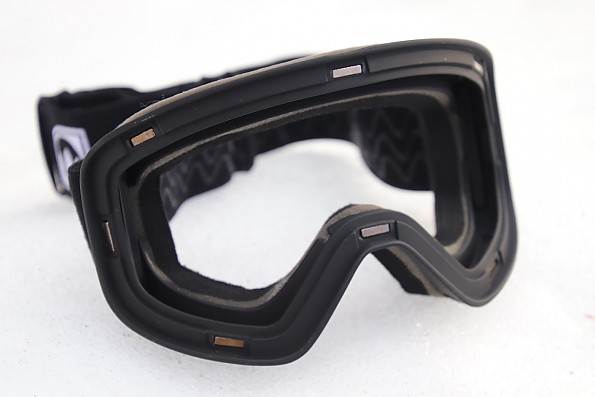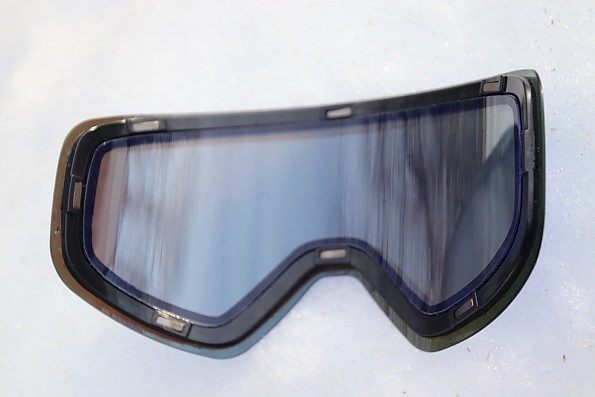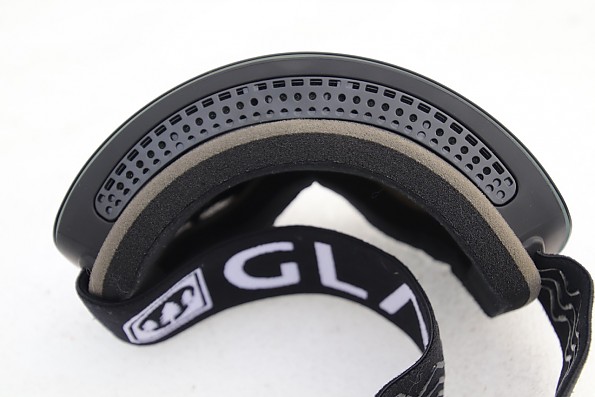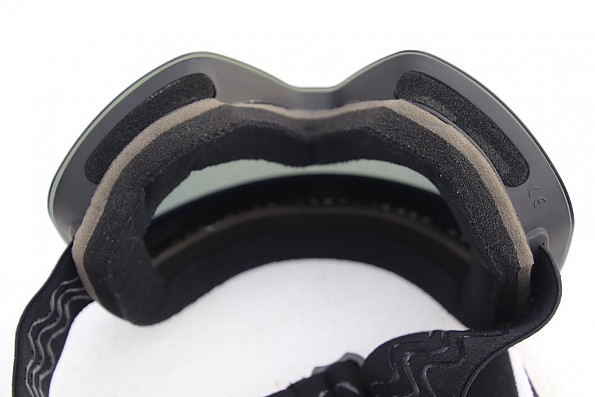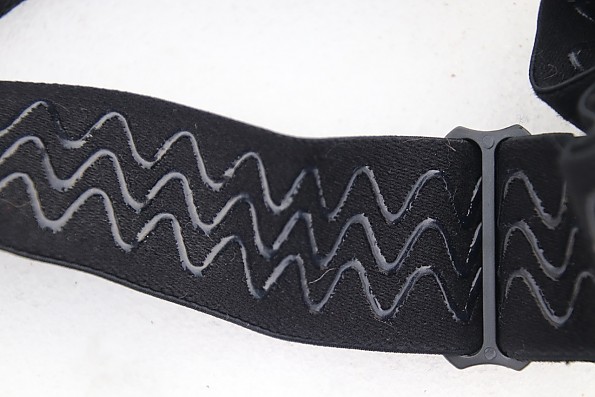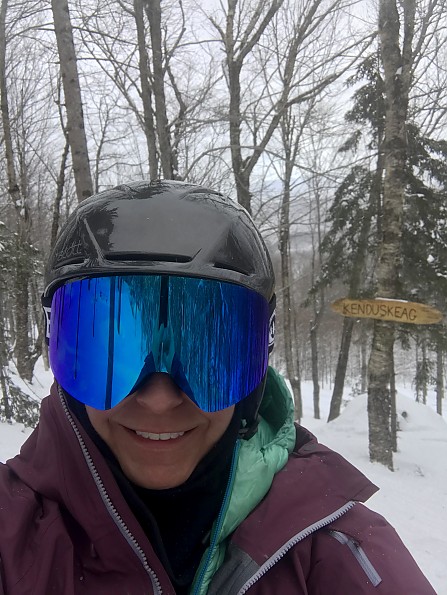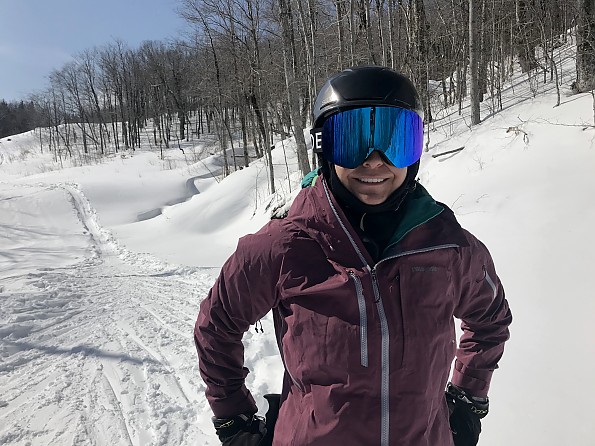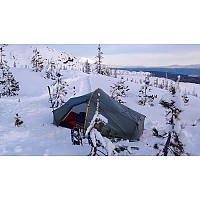Glade Pulsar Magnetic Goggles
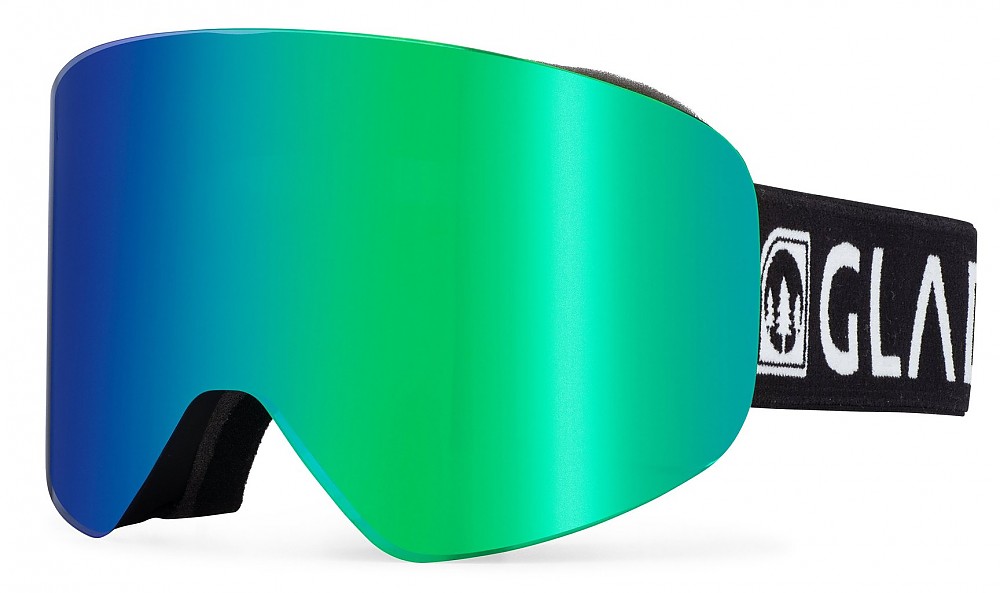
The Pulsar Magnetic Goggles from Glade Optics provide an excellent, wide field of vision in a comfortable, surprisingly affordable goggle. The four available Pulsar lenses can be switched out very easily due to magnets, work in a range of light levels, and are polarized to reduce glare. They come with anti-fog coatings that really work. Glade is a small, independent company, so they don't offer as many style options in frame sizes or colors as the big behemoth brands, but their offerings are increasing and are well made, good-looking, and very affordable.
Pros
- Excellent, wide field of vision
- Magnetic lenses are super easy to switch
- No fogging
- Polarized
- Grippy strap stays put
- 100% UV protection
- Price ($100)
Cons
- Lens popped off twice when I shoved goggles up onto my helmet
- One minor scratch
- Would like to see more lens options (*coming for 2020-21)
- Less choice in colors, styles, sizes (but you're supporting a small brand)
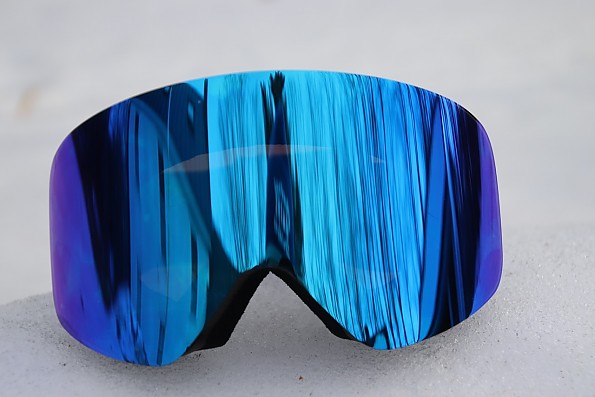 Glade Pulsar Magnetic Goggles
Glade Pulsar Magnetic Goggles
Glade, a small, independent company located in Colorado, currently offers three goggle models: the Pulsar (magnetic lenses, above), the Challenger (its flagship model), and the Adapt (photochromic). I've been using the Pulsar and Challenger exclusively all ski season and have been impressed by their quality, performance, and value.
Lens Features
All Glade lenses feature the following:
- Anti-Fog Coating: The lenses have multiple anti-fog coatings, and they work!
- Mirrored Coating: A mirrored coating on the outside reflects more light than a non-mirrored coating, meaning the lens will tend to block more light.
- Anti-Scratch Treatment: I have minimal scratches on either pair of Glade goggles.
- 100% UV Protection: All sunglasses and goggles from any brand should have 100-percent UV protection for both UVA and UVB rays. Glade does.
- Polarized: Additionally, all four Pulsar lens options are polarized to reduce glare. I prefer polarized goggles and sunglasses, so this is a positive for me. I haven't noticed any glare off the snow, even on overly sunny days. If you don't like polarized ski goggles, check out Glade's other options.
Pulsar Interchangeable Lens
The Pulsar Magnetic Goggles stand out for their super easy interchangeable lenses. It's right in the name.
Thanks to eight magnetic attachment points between the lens and frame, you can easily swap lenses in seconds. I generally hate switching goggle lenses and try to avoid it for fear I'm going to break something. With the Pulsars it is no problem at all and is impressively simple.
It's incredibly easy to pull the lens away and separate it from the frame, even with gloves on. If you've ever worried about breaking goggle lenses, don't. The magnets are strong enough that the lens stays in place during use with no movement. You probably wouldn't even realize it was attached by magnets just by handling the goggles, that's how strong it is. Only twice has my lens come off inadvertently, when I was lifting my goggles up onto my helmet and shoved a bit too hard. Otherwise, it's secure and stable, and I have never been concerned about the goggle lens moving while skiing.
The biggest issue is that you might get the lenses smudgy while handling them (use the included microfiber goggle bag to clean them off).
Fit & Comfort
Sizing
Each of Glade's goggles come in one size only. Of its three goggles the Pulsar is the biggest, the Challenger is smallest (though not diminutive), and the photochromic Adapt fits in between. Glade founder Curt Nichols says that its one-size-fits-all model lets them cover the vast majority of the North American market, and that focusing on a standard size allows the company to fuel growth.
The Pulsar's magnetic lens means the frame has a rimless design for maximum peripheral field of view. The frame is a mold injected ergonomic TPU frame. It's soft, a little flexible, and comfortable on the face.
I have a larger head and tend to wear medium to larger helmets, so the Pulsar works well for me. If you have a smaller head, I'd look at the Challenger, though it's not tiny and still fits an adult.
Note: For winter 2020-21, Glade is making some minor structural and aesthetic changes to the Pulsar. The lens will be a little smaller and have an updated shape, and two new magnet pairing locations will be added. While this means the current and the updated lenses and goggles will not be interchangeable, if you already own Pulsar goggles, the company still will have 2019-2020 frames and lenses in stock next season.
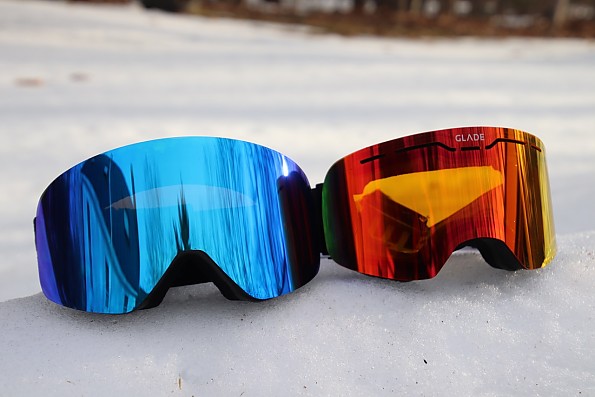 Pulsar on left, Challenger on right
Pulsar on left, Challenger on right
Helmet Fit
I've worn both the Pulsar and Challenger goggles with my Scott ski helmet this ski season. I've also tested them for fit with my kids' POC and Shred helmets with no fit issues. If you like to be brand-coordinated and ensure no gaper gap Glade has its own helmet, the Tenmile (available in two sizes). But, it's not necessary to match for fit.
 My 11-year-old thinks they look cool (not necessarily on me, she just wants to steal them).
My 11-year-old thinks they look cool (not necessarily on me, she just wants to steal them).
No Fogging
All Glade goggles come standard with anti-fog coating on the inside of the lens, a dual-lens system to prevent large temperature differentials, and vents on both the top and bottom of the frame for "a fog-free experience."
It works! The goggles vent well while skiing, or just sitting on the chairlift. The only times I've experienced any fogging were very cold days when I've had my balaclava up around my nose, trapping in my breath. It's been minimal though and clears up as soon as I move the balaclava and let the goggles vent.
Glade says you can use an anti-fog cleaner if you want, but you don't need to (I have not).
Grippy Strap
The strap is plenty large to fit comfortably around helmets and is straightforward to adjust. It has numerous silicon strips on the inside to keep the goggles in place. The strips have a lot of grip and the goggles do not budge.
Vision
So, how well can you see with Glade's Pulsar goggles?
Very well!
This is a case of not noticing the gear being the point. I really appreciate Pulsar's wide field of vision while skiing in a variety of conditions and light levels from sunny to overcast days. The expansive view is one of my favorite features of these goggles, along with the magnetic interchange. The rimless design removes any feeling of blinders and I don't even notice the goggles once on.
The Pulsars have several lens options, all polarized:
- Blue (18% VLT)—the ones I'm testing
- Gold (19% VLT)
- Green (24% VLT)
- Low Light Orange (54% VLT)—only available as an add-on lens
- *Silver Lens (~10% VLT)—a bright light specific lens, coming winter 2020-21*
VLT stands for visual light transmission. Lower VLT percentages are best for sunny days and higher ones are best for cloudy or overcast days. Additional Pulsar lenses range from $45-55 and come with a microfiber goggle bag.
I'm testing the blue lenses, which have the Pulsar's current lowest VLT at 18 percent, meaning they are the darkest option. The blue lenses have worked well for me for most sunny to cloudy days here in Maine. I put them on and don't think about them for most conditions.
They do have their limits, which is why lenses come in different light levels.
If I was spending most of an overcast day in the trees I'd consider switching to a lighter/brighter lens. At the other end, on a recent very sunny day I found my eyes getting sore and tired from the sun reflecting off the snow. It was a very bright day and others commented to me on it as well. This was my biggest issue with the goggles, and Glade is addressing it with a new bright light specific Silver Lens (~10% VLT) for winter 2020-21.
With this addition Pulsar's lenses will range from 10% to 54% VLT. Similarly, the Challenger has six options (plus two more for next winter) ranging from 8.4% to 54%, and the Adapt's photochromic lens ranges from 30% to 84%. Since the Pulsar's ease of lens switching sets it apart, I hope Glade continues to build up its individual lens options.
If you're not sure what frame/model and lenses are best for you, Glade has a Goggle Finder selection tool. I did it and got...these exact goggles and lenses!
Durability
When not in use I store my goggles in their goggle bag, inside my helmet, inside my ski bag. While I aim to take reasonable care of optics and other breakables, I don't baby them either. They get packed into a very full bag of gear and clothing and then get used without special consideration.
Both pairs of Glade goggles show only minimal signs of wear and scratches after several months of use during a Maine winter. They have experienced snow, sleet, and even freezing rain, as well as a good hard fall. I have also attached the Pulsars, unprotected on my helmet, to the outside of a backpack while skinning in the woods up a mountain.
The Pulsar has a very small scratch on its lens, so minor I couldn't capture it in a photo and I never noticed it until looking closely. I'll keep monitoring the goggles for long-term durability, but at this point feel they are holding up well.
Glade does sell a hard storage case for $25.
The Company
In the optics world where an astonishing number of sunglass and goggle companies are owned by a few global conglomerates, Glade Optics stands out as a small independent. Founder Curt Nichols built the brand while living in Boston and skiing the Mad River Valley of Vermont. "All of our prototypes, testing, product development, and content was done in Vermont during our first two seasons," he says.
Now based in Breckenridge, Colorado, Glade sold its first goggles, directly to consumers, in 2015. They are now beginning to roll into specialty shops around the United States because, as Nichols says, "it is important to us to be wherever our customers prefer to shop, and there is certainly a subset of skiers that prefer to touch and feel the gear before purchasing."
My goggles came with some stickers and a printed thank-you from Nichols with his number to text to "get some turns together" if ever in Breckenridge—a nice personal touch. The company is continuing to expand its line, adding sunglasses for spring and expanding its goggle lens options for winter 2020-21 (see above).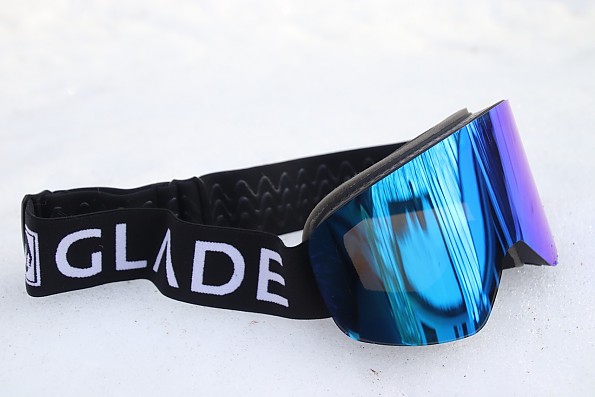
Conclusion
I've been pleased by my experience with the Glade Pulsar Magnetic Goggles this winter. I especially like their wide field of vision which virtually never fogs up, and the magnetic interchange which make switching lenses super easy. The Pulsars are an excellent value at $100. I'd recommend Glade goggles as a solid, affordable option for skiers and snowboarders. The goggles perform well, ensure good vision on snow in various light levels, hold up to regular use, and don't cost a fortune. I'll keep using these goggles and monitoring their durability. I'm also interested to see how the company and its line grows in coming seasons.
Background
I've been skiing for more than three decades, which means I've been wearing goggles while skiing for that long. Other brands used include Smith, Oakley, POC...
Source: received for testing via the Trailspace Review Corps
(Sample for review and testing provided by Glade)
Your Review
Where to Buy
You May Like
Accessories: Glade Additional Pulsar Lenses,
Specs
| Price |
MSRP: $99.99 Historic Range: $99.99 |
| Blue |
18% VLT |
| Gold |
19% VLT |
| Green |
24% VLT |
| Low Light Orange |
54% VLT |


